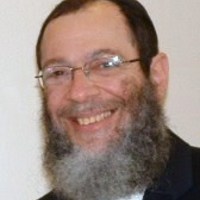Rabbi Yitzchak Shmuel Ackerman, LMHC
Sometimes I get so angry I canât see straight.
Perhaps youâre being blinded by the reflection of the son.
Thatâs not a typo. Many parents have said to me that their childâs behavior reflects upon them. They report being embarrassed, not for their child, but by their child, when he behaves inappropriately in a public place. They donât feel bad that their child is making a fool of herself. They feel bad that sheâs making a fool of them. Thatâs when the parent says something inappropriate in that same public place, and the situation spirals downward rapidly. Blinded by the reflection of their childâs behavior on them, they donât know what to do.
There is a way to break the downward spiral, maybe even prevent it. It requires some analysis of this concept that a childâs behavior reflects upon his parents. Where did that idea come from?
The same place all important ideas come from. Torah.
When Yaakov Aveinu left his parentsâ home, he asked Hashem for two things: lechem lâechol uâbeged lilbosh, literally âbread to eat and clothing to wear.â Bearing in mind that he left home with a specific instruction from his father to find a wife, it seems more reasonable to for him to have dovened for success on meeting a suitable wife and raising a family with her. According to Tosefes Bracha (Braishis 28:20), Yaakov was dovening for a wife and children, using the term lechem to allude to a wife, and the term beged to allude to children. Tosefes Bracha cites Rashi on Braishis 39:6 to show that Yosef alluded to aishes Potifar with the term lechem, demonstrating that the word lechem is used elsewhere to refer to a wife. But where else do we see children referred to as clothing?
In the following gemara:
âNow Yehoshua was clothed with filthy garments.â (Zachariah 3:3) Surely it was not his wont to wear filthy garments! But this intimates that his sons married women unfit for the priesthood and he did not stop them. (Sanhedrin 93a)
The High Priest Yehoshua is described as garbed in clothing that is soiled by his childrenâs inappropriate behaviors.
Tosefes Bracha explains:
Children are like a personâs clothing. Just as a garment enhances the appearance of a personâs body, children enhance his soul, as it says in Mishlei (10:1) âA wise son brings joy to his fatherâ because the father is honored through him. Thus it also taught in the Midrash Tanhuma on Vayikra, âin the merit of children, fathers are honored.â This was the reason for referring to a person as the father of an illustrious son, as in Terach avi Avraham, Kish avi Shaul, Avuah dâShmuel, and others in Tanach and Shas. On the other hand, children who do not behave appropriately stain and diminish their fatherâs name and honor; they are like a sign of disgrace on his clothing.
So we see from Torah how the behavior of a child does reflect upon his parents. How do you make your child reflect positively upon you? How did Yehoshua, the Kohel Gadol with dirty clothing, make his children clean up their act so he wouldnât be sullied by their behavior?
According to the Malbim, he didnât. The malach told his subordinates to remove the soiled clothing from Yehoshua. The Malbim explains that this meant to remove the suffering he felt from the sins of his sons.
This doesnât mean Yehoshua was told to ignore the sins of his sons. It means he was taught that he neednât be soiled and diminished by the sins of his sons. He was shown that he was still worthy of wearing the mitznefes, the crown of High Priesthood, even though he had been unable to prevent his sons from making terrible mistakes. From that position of honor he would more likely influence his sons to mend their ways; more likely, but there are no guaranties.
That is made clear by the gemara Sanhedrin 104a. The Mishna listed Kings of Israel who had lost their place in Olam Haba. The gemara wondered why some very wicked Kings were not included in that list.
And why was [the wicked King] Amon not included? Because of [his son, the righteous King] Josiah's honor. Then Manasseh [the righteous King Hezekiah's son] too should not be included, because of Hezekiah's honor?
[The answer is that] a son confers merit on his father, but a father confers no merit on a son, as the pasuk says, âNeither is there any one that can deliver out of my hand.â (Devorim 32:39) Avraham cannot deliver Yishmael, and Yitzchak cannot deliver Esau.
Yishmael and Esau did not bring honor to their fathers. But their failures didnât prevent their fathers from becoming our Patriarchs, paradigms of Chesed and Gevurah, respected leaders in their own lifetimes, and for all time.
Your child is not, chas vâshalom, an Esau even when he doesnât behave as you wish he would. You can still maintain your self-respect when your child disrespects you, even in public. I am not suggesting that you condone or ignore bad behavior. I am urging you not to lash out against it in a way that lessens you, and in no way helps your child. A harsh and impulsive reaction to your childâs misbehavior will probably lead to onlookers to imagine that your child is harsh and impulsive as a result of how you are. A measured and controlled response will probably lead them to think that you are working hard to help your child, even when your child is giving you a very hard time. Yes, your childâs behavior does reflect upon you. Your response reveals your true image.
Rabbi Yitzchak Shmuel Ackerman is a Licensed Mental Health Counselor with specialties in marriage, relationships, and parenting. He works with parents and educators, and conducts parenting seminars for shuls and organizations. He can be reached at 718-344-6575.

 Previous
Previous

